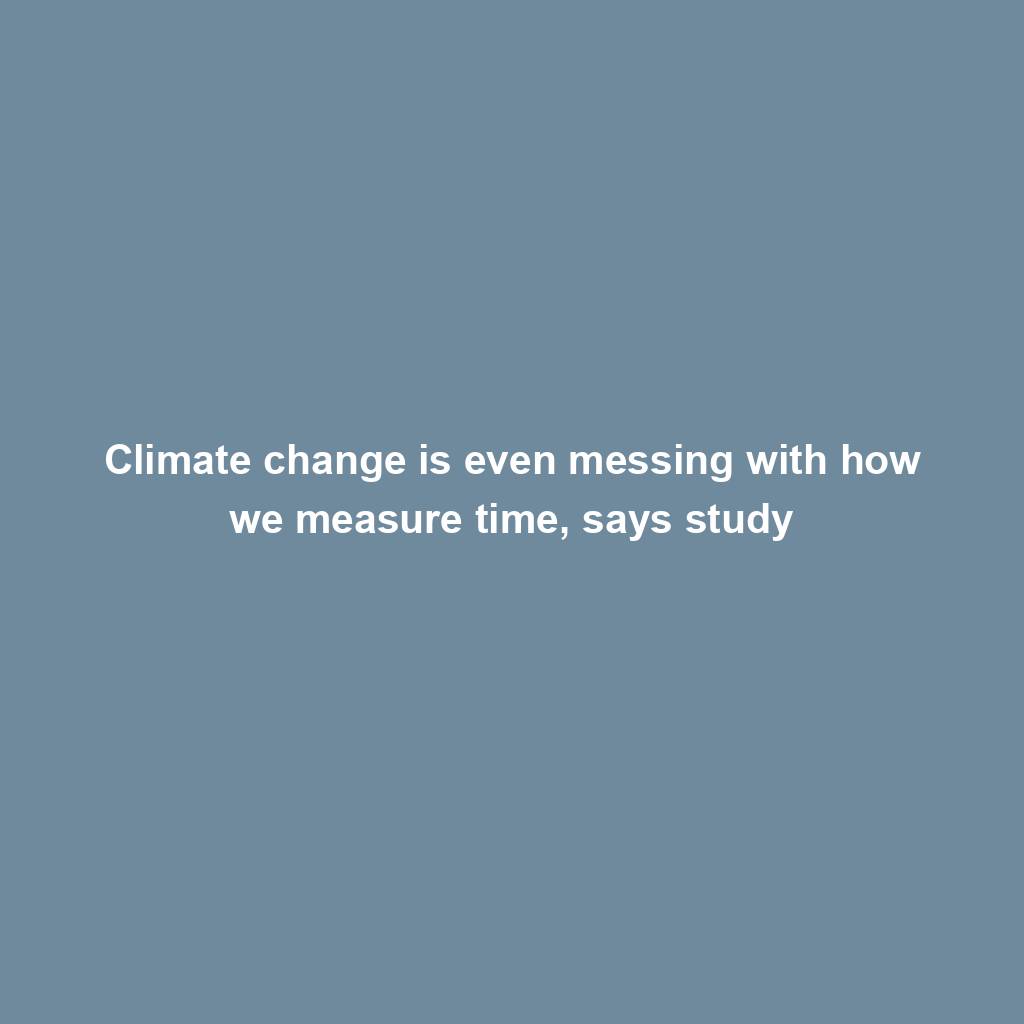PARIS: Battle to wrap your head round daylight financial savings? Spare a thought for the world’s timekeepers, who’re attempting to work out how local weather change is affecting Earth’s rotation – and in flip, how we hold observe of time. In an odd twist, international warming may even assist out timekeepers by delaying the necessity for historical past’s first “negative leap second” by three years, a examine revealed on Wednesday urged.Consultants concern that introducing a unfavourable leap second – a minute with solely 59 seconds – into normal time may trigger havoc on pc techniques the world over.For many of historical past, time was measured by the rotation of the Earth. Nonetheless in 1967, the world’s timekeepers embraced atomic clocks – ushering in a extra exact period of timekeeping. However sailors, who nonetheless relied on the Solar and stars for navigation, and others wished to retain the connection between Earth’s rotation and time. There was an issue. Our planet is an unreliable clock, and had lengthy been rotating slower than atomic time, which means the 2 measurements have been out of sync. So a compromise was struck. Every time the distinction between the 2 measurements approached 0.9 of a second, a “leap second” was added to Coordinated Common Time (UTC), the internationally agreed normal by which the world units its clocks.Although most individuals possible haven’t seen, 27 leap seconds have been added to UTC since 1972, the final coming in 2016. However lately a brand new drawback has emerged that few noticed coming: Earth’s rotation has been dashing up, overtaking atomic time. Which means that to convey the 2 measurements in sync, timekeepers might must introduce the primary ever unfavourable leap second. “This has never happened before, and poses a major challenge to making sure that all parts of the global timing infrastructure show the same time,” mentioned Duncan Agnew, a researcher on the College of California.He decided that if not for local weather change, a unfavourable leap second might need wanted to be added to UTC as quickly as 2026. However ranging from 1990, melting ice in Greenland and Antarctica has slowed down the Earth’s rotation, the examine mentioned. This has delayed the necessity for a unfavourable leap second till at the very least 2029, it added. Demetrios Matsakis, ex-chief scientist for time companies at US Naval Observatory who was not concerned within the examine, mentioned he was sceptical of Agnew’s evaluation.
#Local weather #change #messing #measure #time #examine
For more information, check out these articles:
